Advisory Board
The Advisory Board serves as a high-level entity within IAPH, providing strategic advice and guidance. Members of the Advisory Board are distinguished and experienced individuals, both from within and outside the EMR. The Board, alongside other organizational entities, supports and enhances the mandate of IAPH in strengthening key capacities for public health in the region.
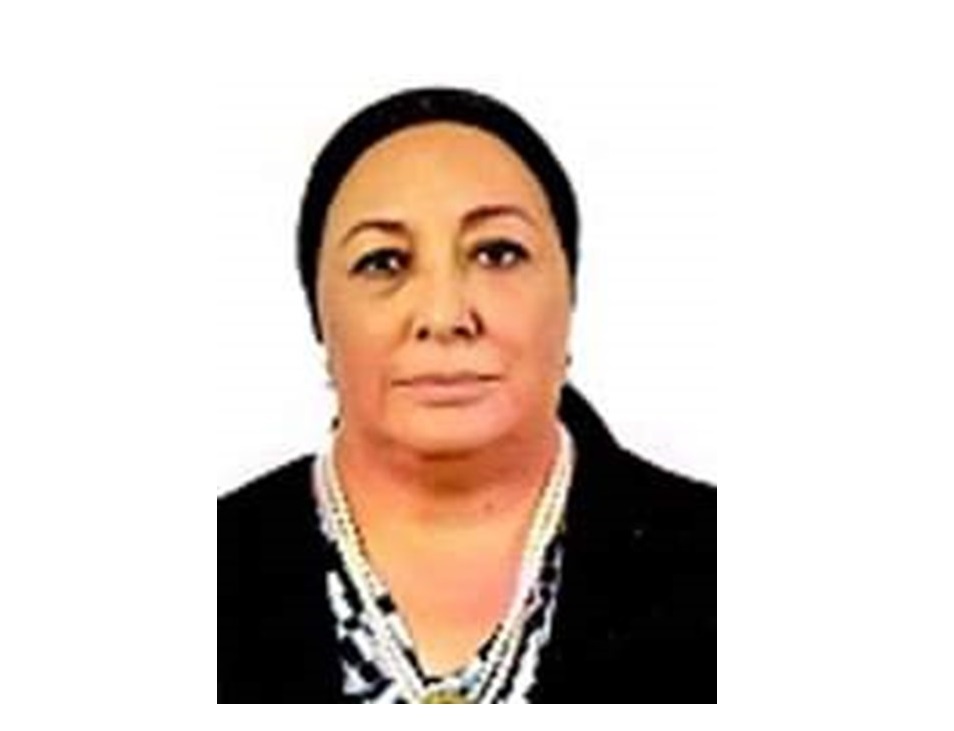
Prof. Maha El Rabbat
Prof. Maha El Rabbat is a Professor of Public Health, Faculty of Medicine, Cairo University.
She has been appointed as the WHO/ Director General Special Envoy on COVID 19 for EMR.
El Rabbat is a former Minister of Health and Population of Egypt and former Executive Director of the Middle East and North Africa Health Policy Forum. She has held several high-level political, academic, and leadership positions and has accumulated more than 35 years of public health teaching, strategic leadership, policy, advocacy, and operational expertise. She has also worked closely with national, regional, and international organizations as a public health expert on a wide range of public health issues and seeks through her work to strengthen regional public health and health systems and governance for human development particularly in middle and lower-income countries, in fragile settings, deprived areas and among vulnerable groups through evidence-based public health, capacity building, policy, knowledge exchange, and networking.
Her membership in multiple health committees and associations such as WHO Expert Reference Group on WHO Impact Framework; Advisory Committee for Health Research /EMRO; Expert Reference Group on UHC Priority Benefit Packages in EMRO; OIC RMNCH Network; Cross-sector CSO Advisory Committee /EMRO; has allowed her to be closely involved in observing and understanding regional and national public health needs and challenges. As an academic, she was part of the task force on accreditation and was responsible for Faculty’s community development and follow-up; she is also a founding member of the ethical research committee at Kasr Al Aini, Faculty of Medicine one of the first committees founded in Egypt.
During her two-year tenure as an elected Chairperson of the Public Health Department at Cairo University, she successfully led the reform of public health education, redirected and upgraded public health teaching, and brought new techniques, directions, and dimensions to postgraduate teaching and research. Working with other faculty members, she introduced new curricula related to emerging national and regional issues of importance and worked with a team from Indiana University to establish a research center dedicated to public health in Africa, contributed to the development of an innovative multidisciplinary degree in professional health economics at Cairo University, sought and succeeded in making public health issues a national priority through conduction of national stakeholders workshops, while reforming public health learning and teaching and supporting the university’s regional and African efforts.
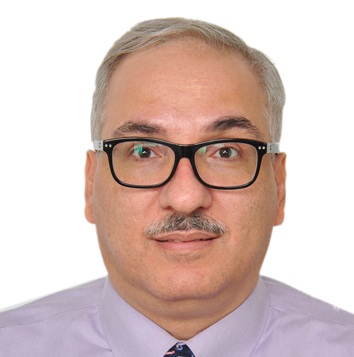
Prof. Ziad A. Memish
Ziad Memish is currently a senior consultant in infectious diseases and Advisor to HE the Supervisor General of KSrelief for Medical & Humanitarian Research. Professor at the College of Medicine in Alfaisal University, Riyadh, Saudi Arabia; and Adjunct Professor in the Hubert Department of Global Health, Rollins School of Public Health, Emory University, Georgia, USA.
Professor Memish obtained his MD from the University of Ottawa, Ottawa, Canada in 1987 and is Board certified by the American Board of Internal Medicine, the American Board of Infectious Diseases as well as a Fellow of the Royal College of Physicians (Canada, Edinburgh, and London) and the American College of Physicians. He is widely recognized as a pioneer in Mass Gathering Medicine and Infection Control & established the WHO collaborating center for mass gathering medicine in the Ministry of Health and WHO Collaborating Center for Infection Prevention and Control and AMR in the Saudi Ministry of National Guard (Health Affairs). On a national level he was the first Deputy Minister for Public Health at Ministry of Health for 6 years (2009-2014) & is the chair of the national scientific technical advisory group for COVID-19 and the Chair of the technical advisory group on COVID-19 vaccine under the Royal Court. He received the King Abdulaziz Medal from the first degree in 2007, the highest national award for his achievements in Infectious diseases and infection control in KSA.
He is the EIC of 3 medical journals: Journal of Epidemiology & Global Health (Springer Nature), Journal of Mass Gathering Medicine (Elsevier), and Doctor Sulaiman Alhabib Medical Journal (Wolter Kluwer). Also, Co-EIC of Clinical Infectious Disease Journal (Frontiers). He has presented extensively national and internationally and published more than 900 papers and book chapters.
Board of Advisors Members

Prof. Aamer Ikram
Dr Aamer Ikram is currently Chair of the Advisory Board for Training Programs in Epidemiology & Public Health Interventions Network (TEPHINET); member Technical Advisory Group–Biosafety, WHO; Strategic Advisor International Association of National Public Health Institutes (IANPHI); member Global Council International Vaccine Institute (IVI); Future Global Health Initiatives, Lusaka Agenda; Partnership for International Vaccine Initiatives (PIVI); Strategic Council Gulf CDC; International Biosafety & Biosecurity Initiative for Science (IBBIS); Executive Committee Institute of Safety in Technology & Research (ISTR); member of the Governance Committee (ex-member Board) GAVI, The Vaccine Alliance. Previously, he served on many international boards and committees where his focus was on epidemiology of infectious disease, health security and global public health including Chair Board of International Federation of Biosafety Associations. He is an Adjunct Professor at Emory University.
Over his last six years of service, he served as the Chief Executive Officer of the National Institutes of Health Pakistan. His current focus is on IHR, GHSA, Integrated Disease Surveillance & Response, One-Heath, Biosafety & Biosecurity, Antimicrobial Resistance and Vaccination. Today, he has more than 450 publications including books and chapters.
Dr Ikram graduated from Pakistan’s Army Medical College in 1987; completed a Diploma in Pathology in 1990; MCPS Clinical Pathology in 1991; Fellowship (FCPS) Microbiology in 1998; clinical training in the UK (2005); and PhD in microbiology from Baqai Medical University, Karachi, in 2014, amongst other distinctions.
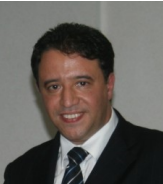
Prof. Abderrahmane Maaroufi
Prof. Abderrahmane Maaroufi, Professor of Epidemiology and Public Health, and Director of Institut Pasteur du Maroc (National Public Health Institute). Professor Maaroufi is a Medical Doctor, finished the residency program in Infectious Diseases at Medical School of Casablanca from 1992 to 1998, He holds a Master Degree in Public Health form the University of Montreal (Canada) in 1996, He passed the comprehensive exam of PhD Program in Epidemiology at The University of Montreal in 1999, He holds a Master Degree in Management and Administration of Health Organizations from the University of Strasbourg (France) in 2020 and a diploma on Health policies and systems analysis from the Institute of Tropical Medicine of Antwerp ( Belgium) in 2021.
Prof Maaroufi is the Head of the department of Epidemiology and Public Health at the
Faculty of Medicine (Morocco) from 2005, Director of Epidemiology and Disease Control of Programs at the Ministry of Health from 2013 t0 2018, Director of the National School of Public Health from 2005 to 2012 and Country Focal Point of Africa CDC.
Prof Maaroufi, has participated to many expertise missions of expertise with WHO and other international organizations. He is the founder of the Field Epidemiology Training Program in Morocco and the Moroccan Public Health Journal. Prof Maaroufi is co-author of many scientific publications. He is laureate of the ¨ Rising Star
Award ¨, delivered by US CDC d’Atlanta and laureate of the scholarship of excellence of the Canadian Francophonie Scholarship Program, delivered by the Canadian Government
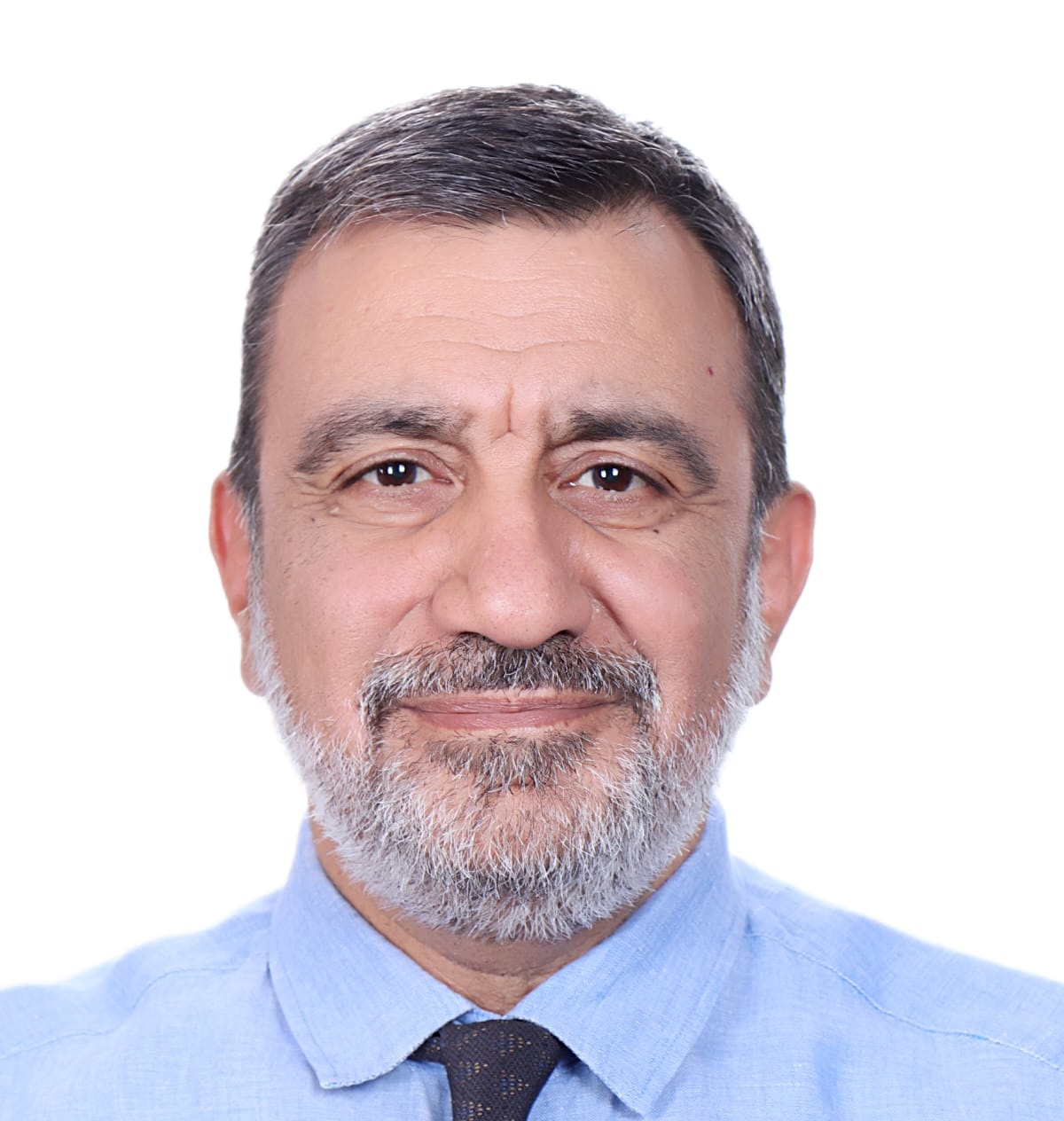
Prof. Abdullatif Hussenini
Abdullatif Husseini is a professor of public health at Birzeit University (currently on sabbatical). He was the university's vice president for community affairs and the director of the Institute of Community and Public Health and the MPH program at Birzeit University. His research interests are rooted in improving the population's health by identifying the various determinants of health and targeting modifiable risk factors through evidence-based interventions. Although his research focus has been on non-communicable diseases and their risk factors, especially diabetes mellitus, cardiovascular diseases, obesity, nutrition, and smoking, he occasionally works on infectious diseases, including brucellosis and hepatitis. His work spans epidemiology, program evaluation, and capacity building in public health. He is a co-founder of the MPH program at Birzeit University and a principal founder of the MPH program at Qatar University. Husseini has authored over seventy scholarly articles, book chapters, encyclopedia entries, and reports. Recently, he published two policy papers on public health and the war on Gaza.
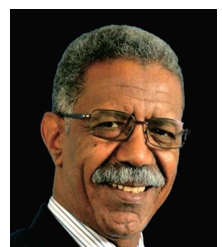
Dr. Ahmed Farah Shadoul
I am currently the Secretary General of Sudan Medical Specialization Board, and Director of Arab Health Specialization Board, Sudan Office, as well as a Senior Advisor to the Federal Minister of Health, and Ministry of Planning and International Cooperation. I am also the Goodwill Ambassador for Health for Sudan. I am a highly recognized and established leader of top national institutions and advisors to several national and international organizations, as well as a highly skillful pediatrician with strong public health orientation and experience. With over 30 years experience in different aspects of medical and health care.
I graduated from the Faculty of Medicine, University Khartoum and received my post graduate training as a pediatrician in University of Liverpool, UK, with additional post graduate degrees in communication and health education; Disaster Management and information technology. I have over 30 years experience in planning, implementing, monitoring, supervising and evaluating maternal, neonatal and child health and disease control programmes in developing and developed countries. I have played a key part in pioneering the implementation of the Integrated Management of Childhood Illnesses (IMCI) in Sudan and the Eastern Mediterranean Region.
I have vast knowledge and experience of the UN system, was the Chief of Health and Nutrition section at UNICEF, Sudan; Medical officer at WHO Sudan. I have taken several missions and assignments to assist EMR countries (Afghanistan, Egypt, Iraq, , Jordan, Morocco, Pakistan, Syria and Yemen) in planning, adapting, implementing and reviewing the IMNCI programmes. I was appointed by WHO as an International Child Health Promotion Medical Officer for two years in post-conflict Afghanistan, and during this period I have developed innovative initiatives and interventions used to initiate and develop National Child Health and Nutrition Policies and help in developing national policies for management of all forms of malnutrition in women and children.
I have joined WHO Pakistan Country office and assisted their MoH in finalizing the Maternal, Neonatal and Child Health National strategy documents. My technical contributions and in depth
knowledge culminated in establishing a National Maternal and Child Health (MNCH) program in Pakistan and Afghanistan, and have played an important role in strengthening the capacity of
National and partners at Federal, Provincial and District levels in implementing the Pakistan National Health Policy and the Devolution Process. Have supported the GoP in many areas
including strengthening the health system, resource mobilization through Global Fund, GAVI and Norwegian Pakistan Partnership (NPPI). Successfully led the massive humanitarian
operations during the Pakistan Earthquake 2005, Swat IDP crises of 2009 and The Megafloods of Pakistan in 2010, and coordinated all the emergency health relief interventions. I was an active member of the UN Task force for One UN Joint Programme in Pakistan, and the chairperson of the UN task force for developing and implementing a contingency plan for Avian Influenza.
Prior to my joining the UN system, I was a senior Government Official in different positions in Sudan including, State Minister of Health for Darfur State, Director General of Primary Health Care at the Federal Ministry of Health. During my tenure, I have restructured the PHC department to achieve new roles and accommodate new developments. Have led a number of essential reforms in the FMoH and developed the strategic plans, particularly, the initiation and finalization of the 25-years FMOH strategic plan (2000-2025).
I have been the Head of Mission and WHO Representative in Afghanistan and Yemen where I led two of the largest humanitarian operations along with the development components. In spite of all the difficulties and multiple frequent emergencies, I was able to successfully manage WHO core functions at country level and provided leadership in Advocacy, Partnership and Representation, Policy Development and Technical Cooperation, and Administration and management. I was an upstream policy adviser to the governments and promoted an effective health dimension to social, economic, environmental and development policy; Assessments of broad political trends at the global and regional level and their implications on national health
programmes and promoting coordination amongst health development partners.
In Policy Development and Technical Cooperation, I have managed to catalyze policy development through informed social and health policy options in ways that stimulate action and help to build sustainable national health systems and capacity in the health sector. During the UN evacuation from Yemen in 2015, I acted as the Humanitarian Coordinator as well as the UN Resident Coordinator for Yemen, and during this time I coordinated and managed all the Humanitarian interventions as well as controlling the different disease outbreaks that took
place in a very complicated operation due to the total siege of the country, and successfully managed to lead the access negotiation between the different fighting factions and mobilized considerable resources to Yemen humanitarian operation.
I have been elected by the WHA 2022 as senior staff member of WHO Staff Pension Committee. I am also a member of the TAG of WHO Global Code of practice on international recruitment of HealthPersonnel.
It is equally important to mention that I’m currently the Secretary General of the Sudan Medical Specialization Board which is the sole institute responsible for professional medical and allied health postgraduate training in Sudan, has over 10,000 Students currently enrolled in training in more than 150 accredited training sites mentored by 2,000 trainers all over Sudan, I am also the Director of Arab Health Specialization Board, Sudan Office and the Coordinator of the Egyptian Fellowship Board.
With regards to the COVID pandemic, I have played a paramount role during the efforts to manage and control COVID-19 Pandemic; while supporting the FMoH in managing and controlling the different disease outbreaks that occurred during the past few years.

Prof. Bettina Borisch
Prof Borisch is a public health expert, renowned globally. She has a long experience , collaborating with international organizations, including the UN. She holds several posts in the NGO sphere including President of the Europa Donna, CEO of the World Federation of Public Health Associations, and she sits on the board of several Public Health organizations. As a civil society worker, she focusses on strengthening the multilateral system and its organizations. Furthermore, she is committed to adding a voice to the underserved.
She is a Professor of Public Health at the Institute of Global Health, Medical Faculty, University of Geneva, and a medical doctor by training. She first specialized in clinical pathology and was the Director of the Institute of Clinical Pathology, University of Geneva before orienting her work towards Public Health. Her research interests include gender health, health systems, universal health coverage and health governance.
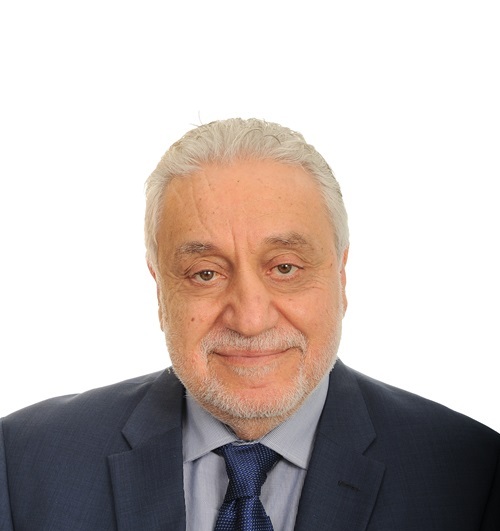
Prof. Ghassan M. Matar
Prof Ghassan M. Matar is a Professor of Experimental Pathology, Immunology and Microbiology, and an Assistant Professor at the Department of Microbiology and Immunology at the American University of Beirut.
He also holds several administrative posts including; Co-Director of the Center for Infectious Diseases Research (CIDR) of the American University of Beirut, Director of the WHO Collaborating Center for Reference and Research on Bacterial Pathogens Department of Experimental Pathology at the Immunology and Microbiology Center for Infectious Diseases Research (CIDR) of the American University of Beirut, and he is also the Chairperson of the Department of Experimental Pathology, Immunology and Microbiology at the American University of Beirut, amongst others.
He holds a Postdoctoral in Research Microbiology & Immunology which he obtained in the year 1993 from the Centers for Disease Control and Prevention (CDC) and Emory University. He is a Doctor of Philosophy (PhD) in Basic Medical Sciences with a degree obtained form the American University of Beirut in the year 1981, and he holds a Master of Science (MSc.) in Basic Medical Sciences (Microbiology) obtained from the American University of Beirut. He has authored and co-authored over 154 research papers, and he presented in several conferences around the world, and he holds several esteemed affiliations, amongst his other notable achievements.
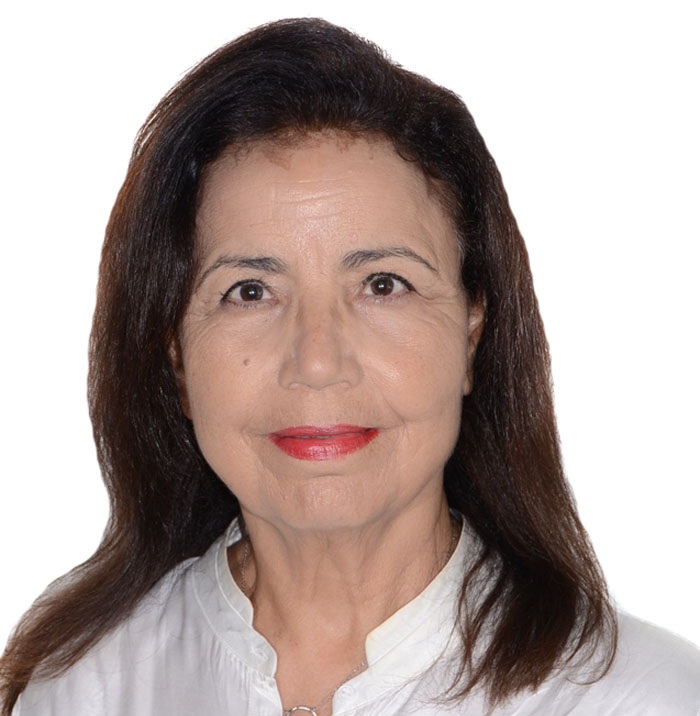
Prof. Habiba Ben Romdhane
Prof Habiba Ben Romdhane is a former minister of health, and a leader in the field of public health. She has served the Tunisian Government during the political transition period where she held high level positions. She continues to contribute to enhancing the influence of the University of Tunis El Manar. She holds more than 35 years of expertise as the head of the Epidemiology Department at the National Public Health Institute and as head of the Cardiovascular Diseases Epidemiology and Prevention Research Laboratory at the Faculty of Medicine of Tunis.
She was granted a Certificate of Merit and Recognition for her contribution to the development of research at the Faculty of Medicine of Tunis in July 2024, and a Certificate of Merit and Recognition for her contribution to scientific influence of the University Tunis El Manar in June 2023. She was awarded the prize of the Maghreb Medical Science Societies for her research on Cardiovascular Diseases Epidemiology, 2001, and she was elected through distinction as a Fellow in the Faculty of Public Health at the Royal College of Physicians in the UK, 2012.
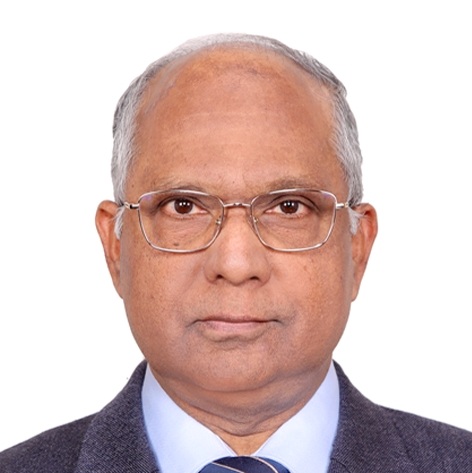
Prof. Mahmudur Rahman
Professor Rahman is currently serving as Country Director, Eastern Mediterranean Public Health Network (EMPHNET), Bangladesh Office, for the last three years. He served as Director of the Institute of Epidemiology, Disease Control, and Research (IEDCR) and the National Influenza Centre in Bangladesh for twelve years. He devoted 37 years to epidemiologic and public health research, surveillance of communicable and noncommunicable diseases, and public health policies.
Professor Rahman played a key facilitator role in establishing the National Influenza Centre, Biosafety Level 3, Nipah Laboratory, and web-based disease surveillance in Bangladesh. He started the Field Epidemiology Training Programme (FETP)/Master’s in Applied Epidemiology and Improving Public Health Management for Action (IMPACT) Courses at IEDCR with the support of the United States Centers for Disease Control and Prevention.
Currently, serving as the Chair of South East Asia Regional Certification Commission for Polio Eradication (SEARCCPE), member of the Global Commission for the Certification of the Eradication of Poliomyelitis, Member of the Eastern Mediterranean Regional Certification Commission for Polio Eradication, member of the IHR Emergency Committee on Events Related to Poliomyelitis, taskforce member of the WHO’s Nipah virus research and development (R&D), Technical Advisory Group (TAG) member of Asia Pacific Strategy for Emerging Diseases (APSED), Advisory Board Member of International Academy of Public Health (IAPH) and member of the IHR(2005) review committee on standing recommendations for COVID-19 and Monkey Pox. In addition, enlisted on the IHR roster of experts.
Nationally, currently serving as the Chair of the National Verification Committee (NVC) for Measles and Rubella/Congenital Rubella Syndrome (CRS) Elimination and Member NITAG- Bangladesh.
Served as a member of the IHR (2005) and Pandemic Influenza Review Committee formed by WHO DG, Chair and member of the Advisory Panel on PIP Framework to the Director General, WHO for six years, member of the SEAR Certification Commission for Polio Eradication (SEARCCPE), member of the Emergency Committee on MERS-CoV, and, Ebola Viral Disease, member of the Scientific Advisory Committee on Visceral Leishmaniasis of TDR/WHO, Executive Board Member of the International Association of National Public Health Institutes (IANPHI), Pandemic Influenza Severity Assessment (Working Group), Expert Committee on Vaccine Strain Selection, Advisory Panel to WHO project on Seasonal Influenza Vaccine composition for the tropics, Member of the WHO Global Task Team (GTT) for pandemic influenza vaccine response (formerly termed as “switch”), member of the writing sub-team within GTT, Member of the Technical Working Group for Review of IHRMEF, TAG member of the Universal Health and Preparedness Review (UHPR). Also served as Vice Chair, Oversight Committee for Bangladesh Country Co-ordination mechanism (BCCM) and member BCCM for about 17 years. In addition, served as a member of the Expert Review Committee for Polio eradication in Bangladesh, Managing Editor of the Journal of Preventive and Social Medicine and member National Technical Advisory Committee on COVID-19 in Bangladesh and member of the Scientific Advisory Committee (SAC) of CEPI.
Nationally, currently serving as the Chair of the National Verification Committee (NVC) for Measles and Rubella/Congenital Rubella Syndrome (CRS) Elimination, Member NITAG- Bangladesh and member National AEFI Committee of DGDA.
Conducted a good number of research in the field of both Communicable and Non-Communicable Diseases. Served as Principal Investigator in phase three and phase four clinical trials. Led Measles Case Fatality Study, Hepatitis B Vaccine Efficacy Study, HIV Sero-prevalence Studies and National Tuberculosis Prevalence Survey in Bangladesh. Authored 188 research publications and studies including 152 publications in peer reviewed journals.
Editor of "Text Book of Community Medicine and Public Health". Earned Masters in Primary Health Care Management from Mahidol University, Thailand and Ph.D in Epidemiology from University of Cambridge, UK.
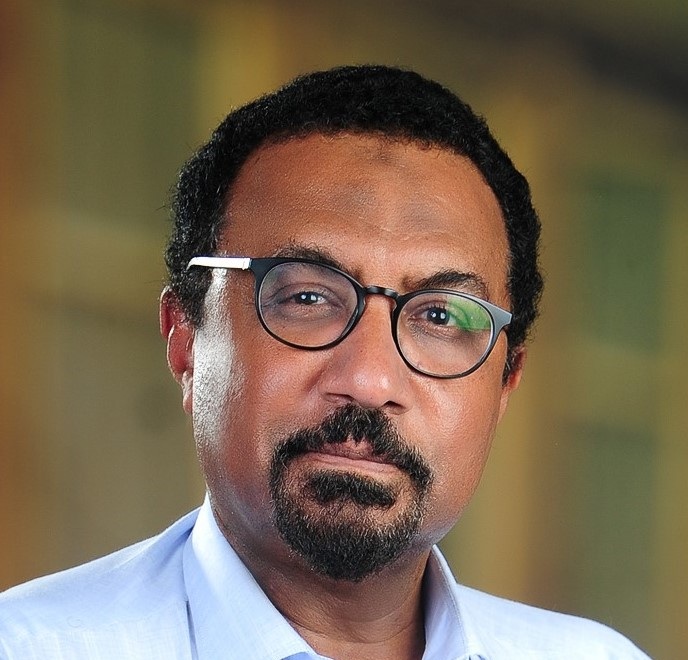
Prof. Mayeh Omar
Prof. Mayeh Omar is an Associate Professor in International Health Systems at the University of Leeds.
Prof. Omar’s professional interests and experiences range from teaching and research in health systems development and strengthening, strategic health planning, human resources and leadership, policy analysis and development, and training of health professionals - to the design and implementation of health reforms in less developed countries.
Prof. Omar is a senior academic and international health systems/health management consultant, specialized in health systems development with over 40 years of low-middle income countries experience, Prof. Omar spent five years at the Istituto Superior di Sanita’ in Rome, Italy, where he was involved in teaching, research and consultancy work in broad areas of health systems development.
Prof. Omar has worked for the Ministry of Health in Somalia for 12 years, as a teacher at Health Training Institutions, Director of Post-basic Health Training Centre, the Head of Co-ordination, and International Relations Division, and later as the Director of the Department of Planning in the Ministry of Health where he was also responsible for the development and implementation of mental health policies and programmes in the country. He has extensively worked in several countries (i.e., Egypt, Eritrea, Ethiopia, Ghana, India, Iran, Iraq, Italy, Kenya, Nepal, Pakistan, Palestine, Peoples Republic of China, Philippines, Saudi Arabia, South Africa, Sudan, Sultanate of Oman, Somalia, Switzerland, Turkey, Uganda, USA, Zambia, Zimbabwe) both on long and short assignments.
Prof. Omar is also involved in supervising and examining postgraduate students at Ph.D. and Master levels. He acted as an internal examiner in Leeds and an external examiner in several universities in the UK and overseas. Prof. Omar has served as a consultant to several international organizations, such as British Council, Carter Centre, DFID, European Union, Global Fund, UNICEF, WHO, and World Bank among others. He has dedicated substantial time to establishing and developing the capacity of training institutions in several low-middle income countries for more than four decades. He trained hundreds of graduates and participants with innovative curricula, educational techniques, and technologies, introducing post-graduate problem-based learning and pioneering continuous professional development (CPD) initiatives for doctors, pharmacists, nurses, and other health professionals. His scientific production focuses on policy and planning, human resources development, community health and gender issues, mental health systems, and aspects of the interaction between the health service providers and the end-users
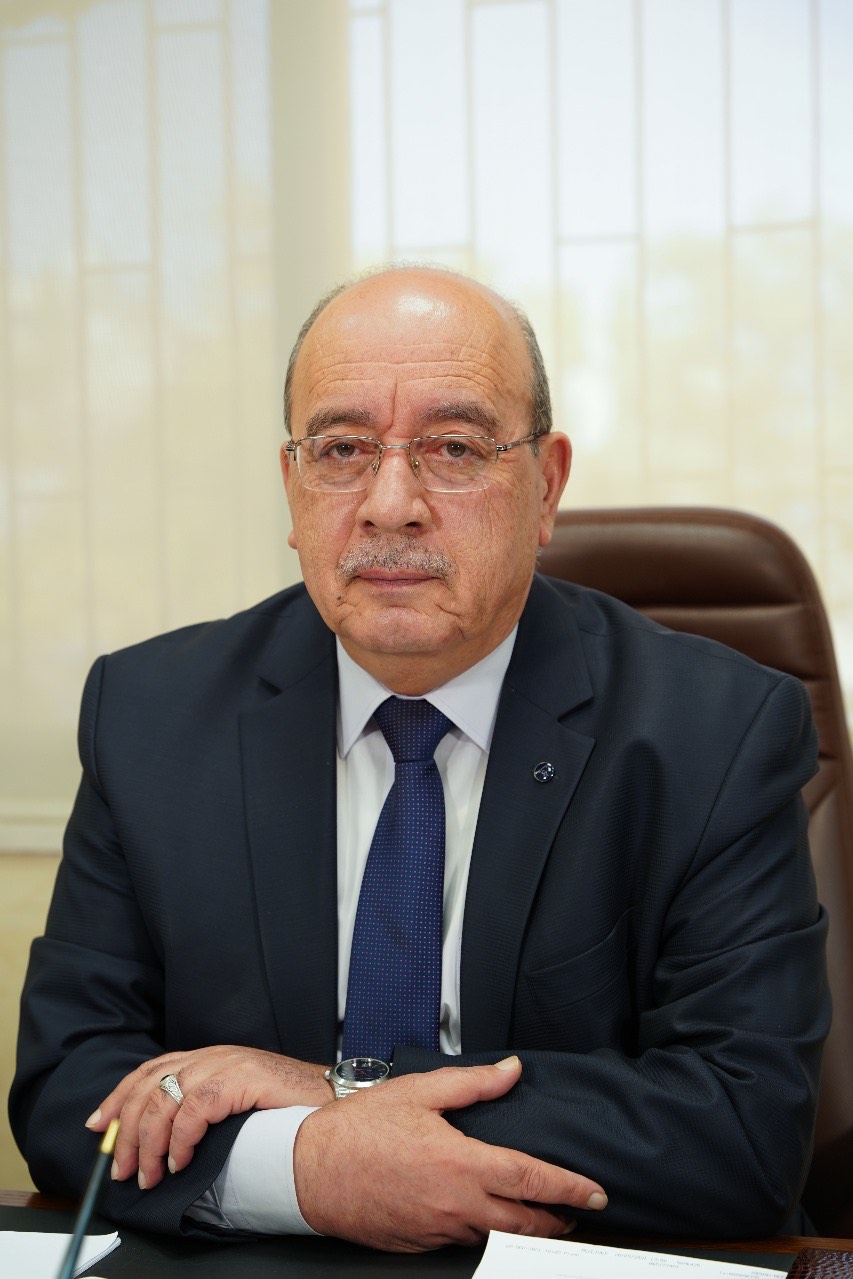
Dr. Mohammed Rasoul Tarawneh
Dr. Mohammad Rasoul Tarawneh brings thirty-years of experience to the Academy. From his roles at the Jordanian Ministry of Health to his current role as IAPH’s Executive Director for he has served in several positions. He was the Secretary General of the Higher Health Council, General Director of Primary Health Care, General Director of Health Planning, and Director of the Non-Communicable Diseases (NCD) Directorate, as well as the Director of Cancer Prevention Directorate and the Director of training and Education, among others.
Dr. Tarawneh also held other positions within his career. He was the Acting President of the Jordan Medical Association, President of the Jordan Society of Family Medicine, and a senior consultant at the WHO. He also represented Jordan at the World Health Assembly (WHA) meetings from 2014 to 2020.
He has also led several major projects within the Jordan MoH and has authored over 35 peer-reviewed publications. He delivered many scientific presentations at notable national and international conferences.
In addition to his professional endeavors, Dr. Tarawneh is actively involved in various advisory and governance roles and is a member of the:
- Board of Trustees of the Royal Health Awareness Society (RHAS)
- International Advisory Board of Research for Health in Conflict / MENA region
- Board of trustees of the National Breast Cancer Program
- Advisory Board of the Jordan Public Health Forum
- WONCA Council - World Organization of Family Doctors / EMR
- Advisory Group " Primary Health Care Measurement Initiative " / WHO.
Dr. Tarawneh earned his Medical Degree from the 1st Leningrad Medical Institute in 1985. He earned his certification from the Jordan Medical Board (JMB) in Family Medicine in 1994 and got his Post Graduate Diplomas in Community Medicine from Jordan University and Diabetes from the UK.
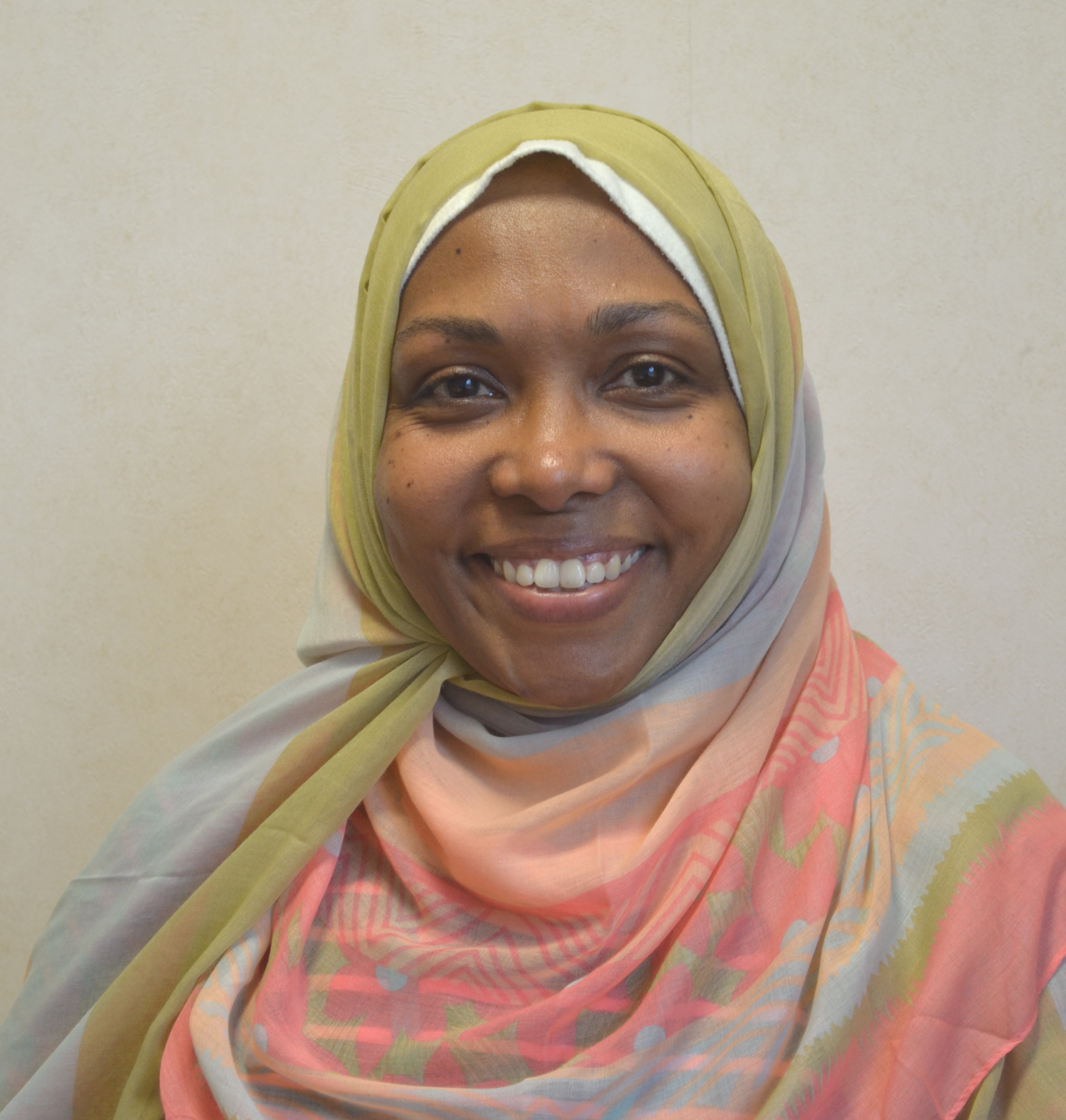
Dr. Muna Abdel Aziz
Dr Muna Abdel Aziz is a retired Director of Public Health in the UK, and she is an Executive Coach and Mentor with e-LAF Coaching Associates. Muna has worked at senior levels in local government and the NHS, previously the Director of Public Health for Salford and Director of Public Health for Warrington. Her interest in economy and health is central to her work on ‘Health in Business’ and ‘Health in Planning’ for inclusive growth.
Muna has a medical degree and first started her career in public health in Sudan in 1992 as an academic. She completed her MD in Sudan, PhD from Cambridge, and she is professionally accredited as a specialist in public health in both countries. She is a founding member of the Sudanese Public Health Network in the UK from 2003, working with the UK Faculty of Public Health to support the Sudan health system as a special interest group. She co-founded YourB which is the first Sharia-compliant credit union in the UK.
In her earlier career, Muna spent three years in the Sudan where she helped establish the Sudan Public Health Institute as Deputy Director. In that time, she led several researches and consultancies covering Human Resources for Health, Mobile health, the National Cancer Strategy, and the Strategic Plan for Epidemiological diseases in Sudan. Her work has also covered diverse topics like malaria, maternal and child health, management of long-term conditions, and health impact assessments of industry.
Re-elected by the UK Faculty of Public Health to the role of International CPD Adviser in 2025, and previously Training Programme Director for Public Health Specialty in Cheshire and Merseyside, Muna retains her passion for education and continuing professional development. She firmly believes that system leadership and multi-disciplinary working across sectors will be key to achieving the transformation needed to meet the sustainable development goals.
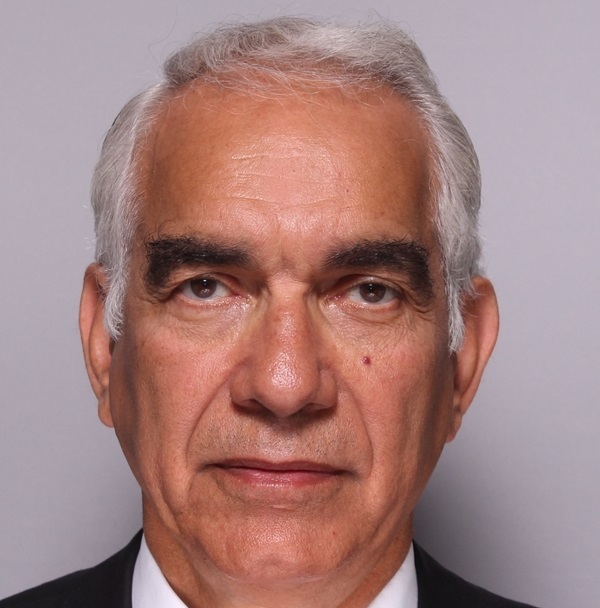
Prof. Salman Rawaf
Prof. Rawaf is the chair of Public Health, Director of WHO Collaborating Centre in the Department of Primary Care and Public Health at Imperial College London, and Honorary Consultant Physician in the NHS.
Prof. Rawaf is the Founder and Editor-in-Chief of the journal Public Health Medicine and a member of several editorial boards. He published over 250 scientific papers, five books, and many international reports and received many awards and recognitions including in 2015 a Life Achievement Award for innovative works in shaping health services, research, and medical education.
On Covid-19, he is a Member of WHO Technical Advisory Committee; Member of Scientific Advisory Group on Covid-19 Department of Health UAE; Imperial College Covid-19 Group: and Supreme Advisory Group on Covid-19 Iraq; published 4 papers so far on the subject and runs a weekly Webinar. Prof. Rawaf led on the development of many educational (Health System Development Module for MPH, Advanced Leadership, NCD, Acute Events and Emergency Responses, and other bespoke Training) and research programmes. His research interests are in health systems organization and management, primary care organization, public health, Diabetes, and other NCD, Covid-19, patient safety, training and medical education, and translation of research findings.
Prof. Rawaf is the chair of Public Health, Director of WHO Collaborating Centre in the Department of Primary Care and Public Health at Imperial College London, and Honorary Consultant Physician in the NHS. He acquired his qualification in medicine, with training in paediatrics and public health, and spent the breadth of his career in leading roles in the NHS; including 26 years as an Executive Director: County Medical Adviser, Medical Director, District Medical Officer, and Director of Public Health. In the latter 23 years of his service in the NHS, he served as the Director of Health in South-West London with full responsibility for the health service in and outside the NHS, from which he then moved to Imperial College as Professor of Public Health, and the Director of the WHO Collaborating Centre for Public Health Education and Training, which supports several WHO Regions and their Member States. Prof Rawaf is globally recognized for his international work and contribution to global public health, health systems development, and primary care in research and service delivery. His work is well documented in supporting countries to strengthen their health systems, service development, and medical education. Prof. Rawaf is an adviser to the World Health Organization on primary care, public health, health systems, medical education and training, human resource for health, and Covid-19; a Fellow of the Royal Colleges of Physicians London and the UK Faculty of Public Health; a Member of the Faculty of Public Health Medicine Ireland; and the UK Faculty of Public Health Global Health Adviser. He is also involved in many national and international advisory committees. He supported many governments in strengthening their health system through reviews and educational programmes. These include most countries in the Middle East and North Africa, Eastern Europe, Malaysia, China, Brazil, Hong Kong, among many others. He worked closely with Chinese colleagues to develop primary care in Shanghai, delivered training programmes in collaboration with Development Foundations, large hospitals, and provinces across China.
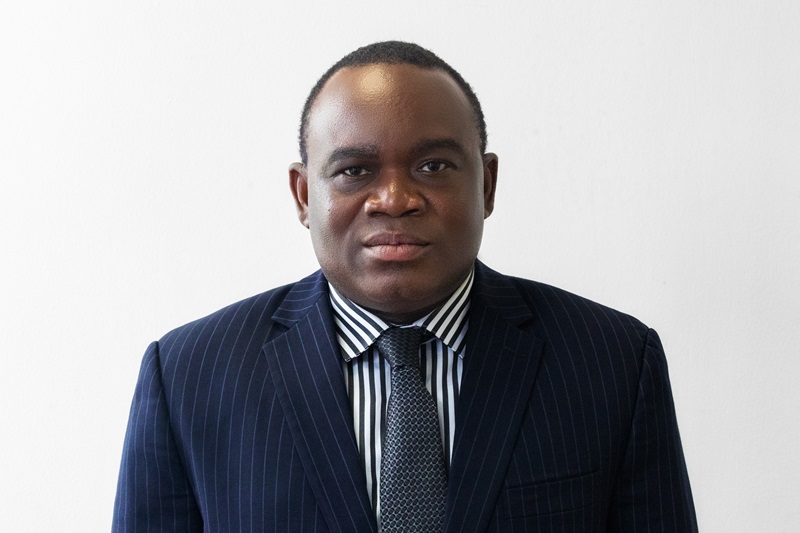
Dr. Simon Nyovuura Antara
Dr. Simon Nyovuura Antara assumed the role of Director of the African Field Epidemiology Network (AFENET) on February 1, 2020, following his appointment by the AFENET Board of Directors. Dr. Antara is a distinguished medical epidemiologist renowned for his extensive expertise in public health practice and applied epidemiology.
Before his current position, Dr. Antara served as the Director of Programs at AFENET, where he played a pivotal role in shaping and executing the organization's strategic initiatives.
Dr. Antara has worked as a Resident Advisor to several Field Epidemiology Training Programs in different countries in Africa. These include the Rwanda Field Epidemiology and Laboratory Training Program (FELTP), Namibia FELTP, and the West Africa FELTP- a regional program based in Ouagadougou for the Francophone West African Countries. Dr Antara has also previously worked as a Municipal Director of Health Service in Ghana and was a key member of the National Rapid Response Team.
Dr Antara has leadership skills and expertise in program and project management, monitoring and evaluation, surveillance, emergency preparedness & response, infectious diseases, training, mentorship, networking & collaboration. He is very focused and committed to his work and has won many awards as a student and in his work life. These include the US Ambassador’s award for exceptional dedication and technical excellence in supporting Namibia to respond to critical public health threats (2013), the University of Ghana School of public Health award for best dissertation and best field practice student (2004), The Kwame Nkrumah University of Science and Technology School of Medicine award for best student in Medicine and Clinical Methods (2000).